Top tips for a smooth transition to Year 10
As the 2022-23 school year commences, our new Year 10 students and their families officially embark on a new journey in international education, which for most of them will be a significant transition. Nonetheless, it will also be a wonderful new start.

In order to support the smooth transition of our Year 10 students and their families, our Head of Year 10 and Pastoral team have summarised some useful tips.
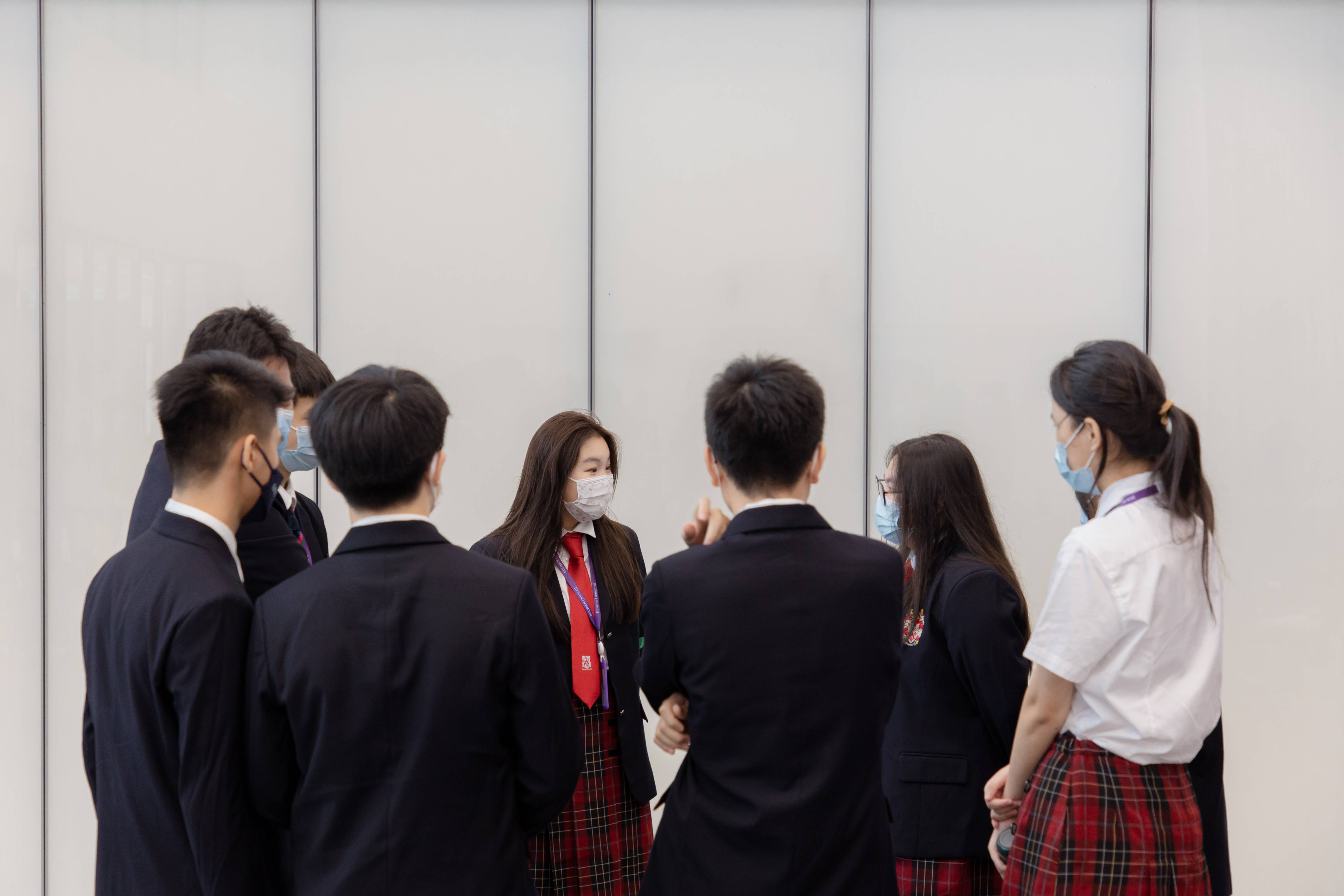
Tip 1
Proactive communication in English to improve the language proficiency
New Year 10 students will be learning broader knowledge in the international curriculum. All teaching and learning, as well as co-curricular activities will be conducted in an immersive English environment, except for Chinese courses. Their proficiency in English would be improved by talking and reading more. Any use of English can be of benefit, both in and outside of classes, in school hours or leisure time.
Another useful strategy is to use English language dictionaries, instead of bilingual ones. It will comprehensively put you in an English language context, increasing your vocabulary, integrating current and new knowledge in English at the same time.
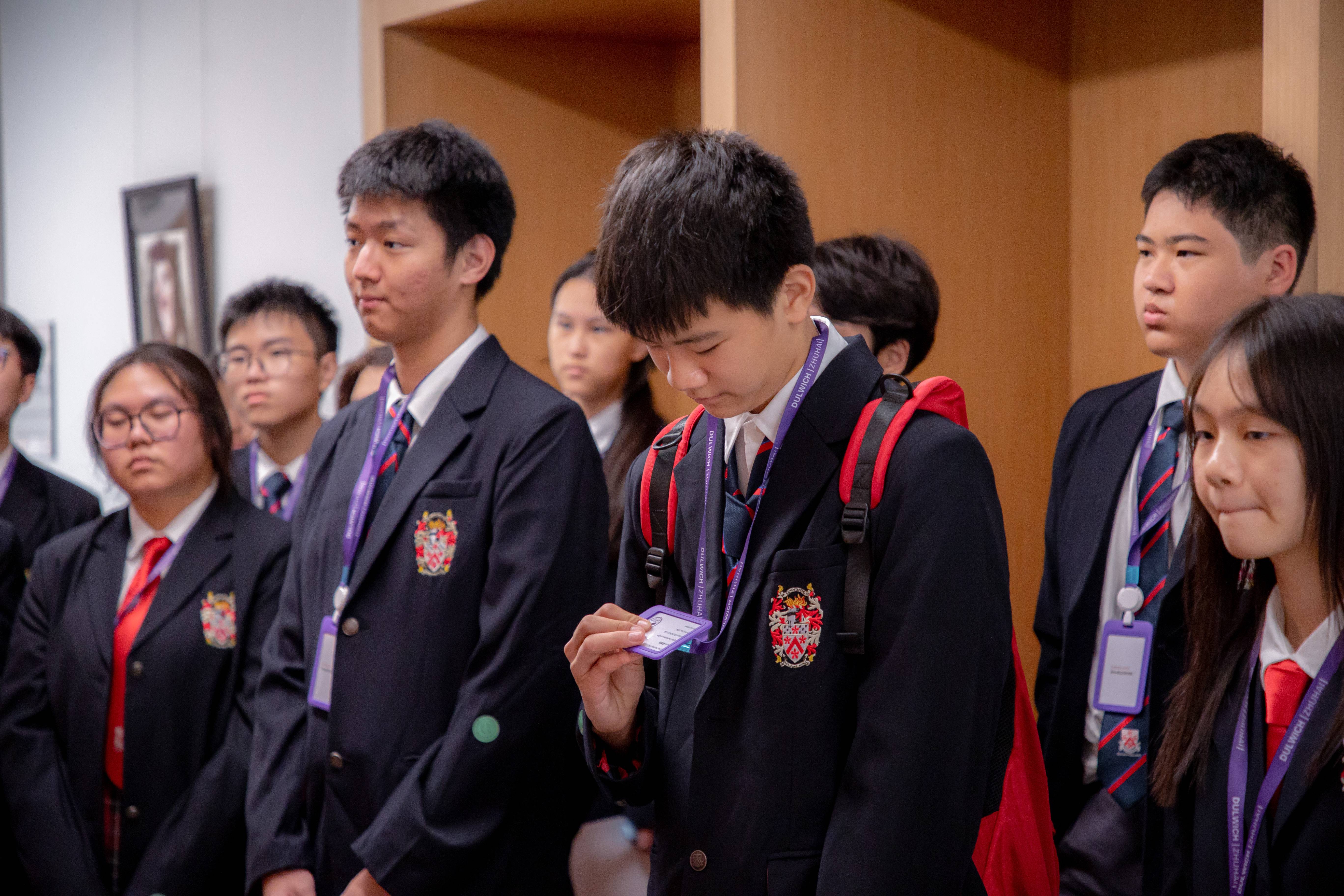
Tip 2
Actively blending into the new community to gain a sense of belonging
Entering a new community and finding a sense of belonging can help promote physical and mental health. Another impact from gaining a sense of belonging is that it will encourage a person to work harder and have greater resilience when facing difficulties. This will also directly impact upon the student's academic performance.
When it comes to the daily campus life, one new thing that matters to Year 10 students, is the school day timetable. It looks different from most of their previous school days, as each individual student will have their own timetable with different “destination” for classes. Students need to mobilise themselves between lessons quickly and meet with new deskmates at each subject lesson. This means the establishment of new interpersonal relationships and friendships. Boarding students will also need to learn to live with schoolmates and smartly manage personal time on campus after classes.

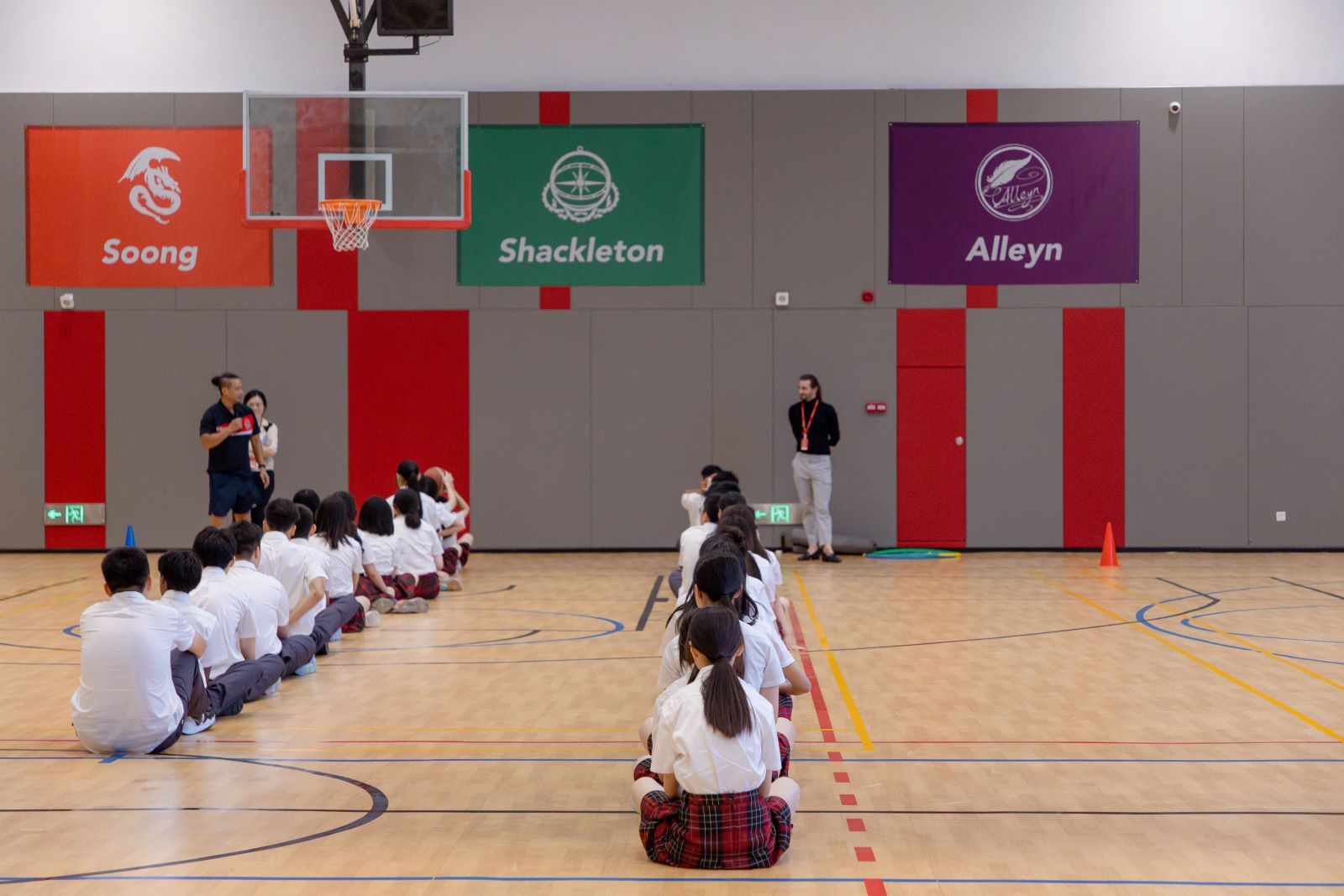
House activities encourage students from different Year Groups to collaborate on common interests or advantage, and fight for the honour of the House. In this case, Year 10 students can quickly find their places in the large family of Dulwich Zhuhai, and at the same time, break through Year Group barriers and showcase their talents in various fields, which leads to the development of self-confidence. Students also learn how to collaborate and develop leadership skills.
For the students who are finding it a bit difficult to acclimatise at the very beginning, you may keep leveraging your existing social support system to relieve the psychological stress. For example, you can share your experience and feelings with your parents, or get together with good friends on weekends or holidays to “gossip” about your new journey with Dulwich Zhuhai. Parents could also encourage their children to blend in gradually and be patient and give them more time to adapt and adjust.


Tip 3
Develop active learning and focus on personal best
At Dulwich Zhuhai, students are encouraged to be proactive in study. This means that some of our new Y10 students may need to change their mindset and cultivate the skill of active learning. It includes identifying personal goals, time management to balance your academic studies and co-curricular activities based on your own timetable and so on.
In addition, we believe that each student will shine in their own field. We focus on the individual performance and progress of each student and does not rank them by grades. Therefore, Year 10 students need to learn to rationally evaluate their academic level and room for improvement, under the guidance of subject teachers. It is important to be patient and resilient in the process of progress. At the same time, students are advised to believe in their own learning ability and potential, actively strive for their personal best results, and gradually build up confidence.

Tip 4
Correct understanding of anxiety and take action to relieve it
New students and parents may be anxious for uncertainties when first joining the school. This is a normal psychological response and a body protection mechanism that we humans evolved. A moderate amount of anxiety can create a sense of urgency, activate our mental abilities, and enable us to be more conducive to problem-solving. So generally speaking, anxiety isn’t necessarily a bad thing, and you don’t need to exclude it.
Anxiety could be taken as a message. When interpreting the full context behind this "message", you may find the possible solution already.
Please have a try, when you feel anxious, ask yourself "What happened? What am I worried about?" Write down all the corresponding answers to these questions, then screen out the feasible solution.
Maybe "where should I start?" is also on your list of questions, then the corresponding solution could be a discussion with a teacher, a friend or a family member.
In fact, in the process of writing down your questions, your anxiety has been greatly relieved, and you will feel that everything becomes clearer. Avoidance often only creates procrastination and heightens anxiety.
When feeling stressful or anxious during lessons, practicing the abdominal breathing or looking at the greenery out of the window, will help you relax a little and feel properly ready for the next class.
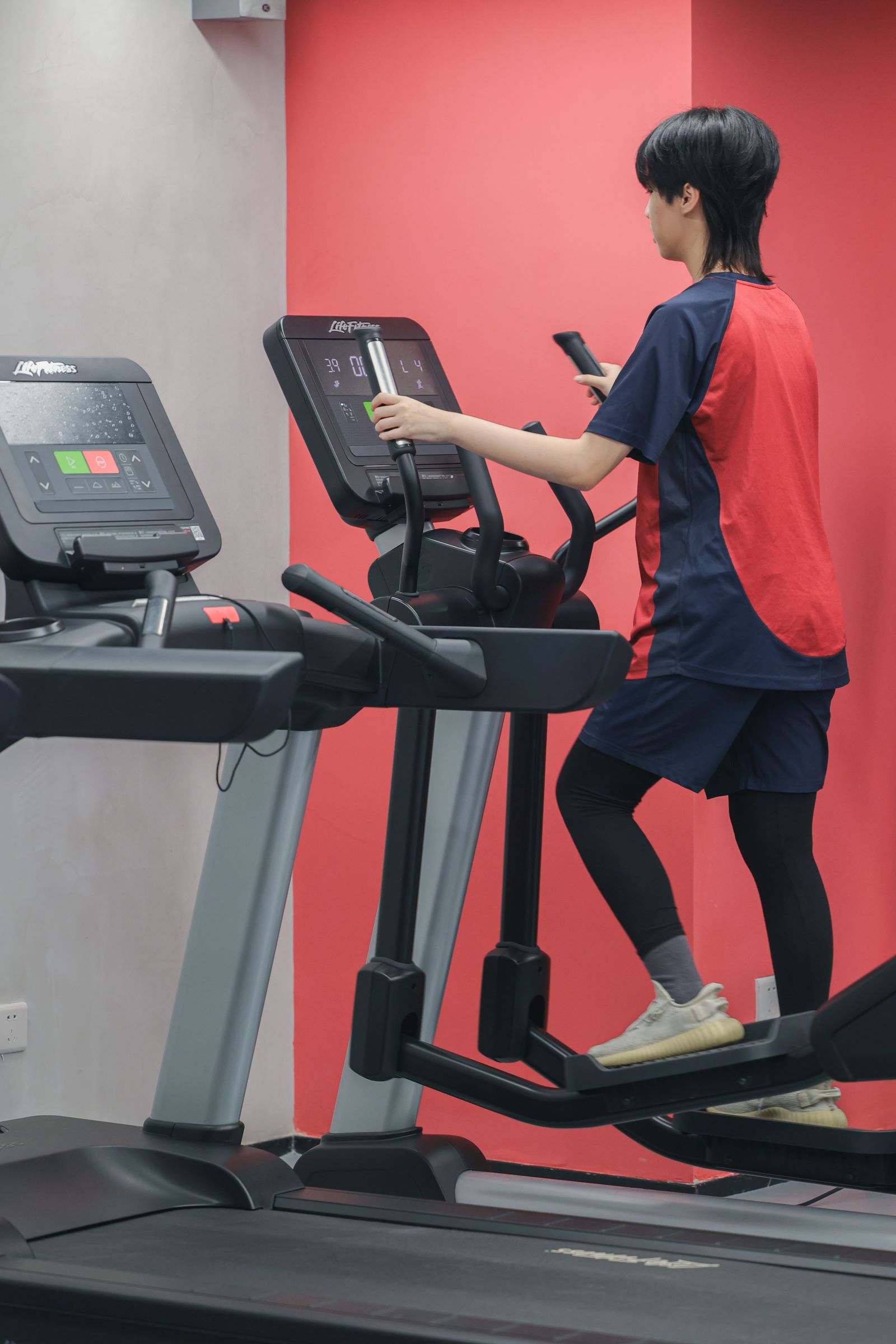
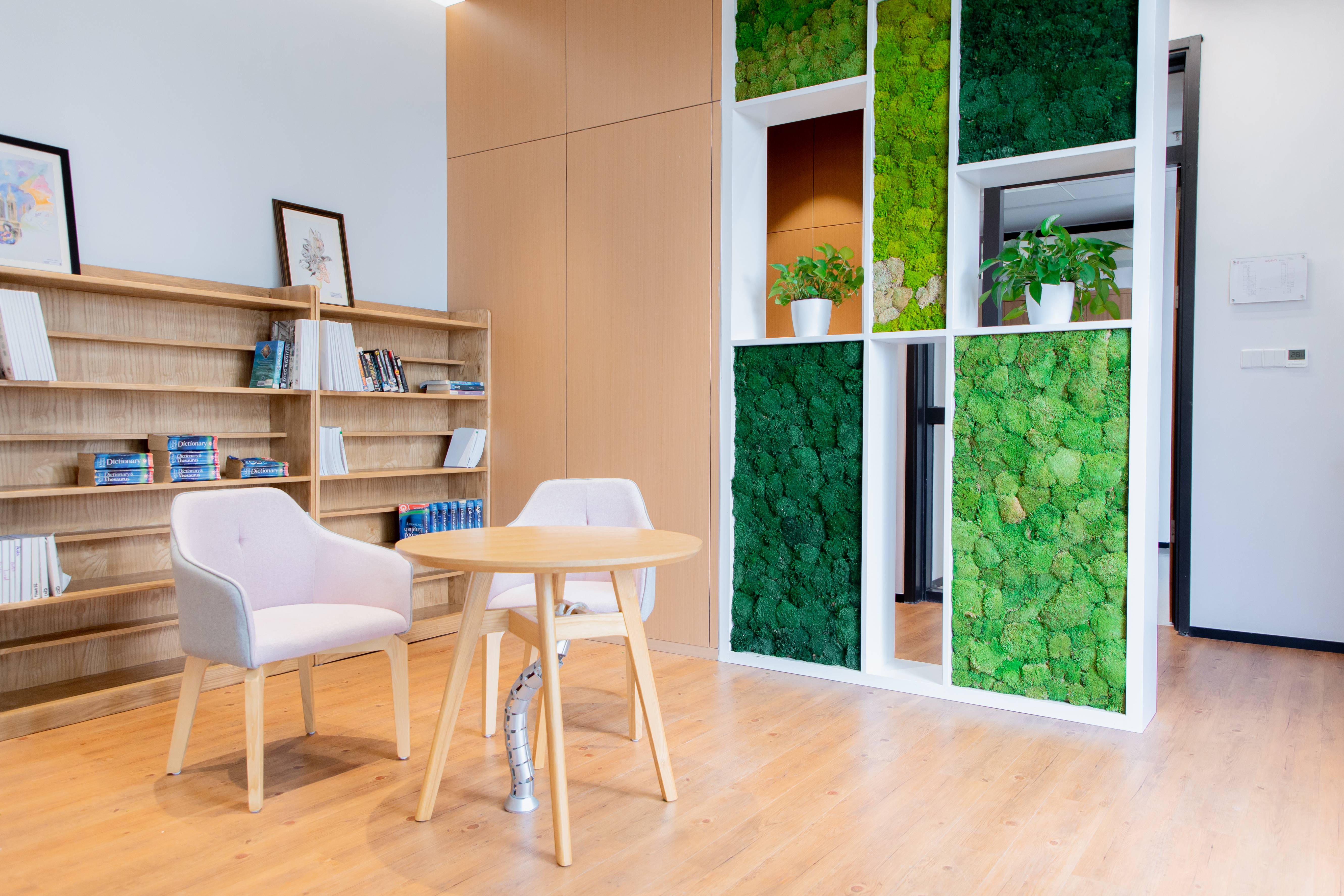
Tip 5
Home-schoolcollaboration to ensure the best experience for our students
Pastoral care and well-being support are vital at every developmental stage of a child. At Dulwich Zhuhai, we ensure that Students Come First through the holistic Pastoral and well-being support system of a professional team. Each student is supported by the form class tutor, Head of Year, Pastoral Support Officer, and a full-time on-campus psychological counselor. All the support to students and families offered by the team will remain highly confidential, to protect child privacy.
The Personal, Social and Health Education (PSHE) course also takes up an important part of our pastoral support system. It aims at having a sustainable and positive impact on students’ holistic development from different dimensions, including improving the sense of personal identity, cultivating a healthy lifestyle, mastering effective problem-solving methods, building positive relationships, understanding cultural diversity and respecting individual differences.
We would also like to work together with parents to support the new students to settle in socially, academically and emotionally. We encourage parents to pay attention to their children at home, contact the school at the right time if you feel that your children may need some help during this critical period of time of transition.
Welcome to the Dulwich Zhuhai family as we begin our four-year journey with the goal that each student will Graduate Worldwise.
References:
Baninzi, S., Mdleleni-Bookholane, T. (2019). Perceived Social Support Systems for Bereaved Students in Walter Sisulu University: A Pilot Study. Perspectives on Community Well-Being, 83-103.
Black, A. E., & Deci, E. L. (2000). The effects of instructors’ autonomy support and students’ autonomous motivation on learning organic chemistry: A self-determination theory perspective. Science Education, 84, 740–756
Chao, Y., Katigbak, C., & Dong, X. (2018). Depression, Anxiety, and Mental Health. Innovation in Aging, 2(1), 509–509.
Schleider, J. & Weisz, J. (2018). A single‐session growth mindset intervention for adolescent anxiety and depression: 9‐month outcomes of a randomized trial. Journal of Child Psychology and Psychiatry, 59(2), 160–170.
Niemiec, C. P., & Ryan, R. M. (2009). Autonomy, competence, and relatedness in the classroom: Applying Self Determination Theory to educational practice. Theory and Research in Education, 7, 133–144.
Paladi, O., & Cuconasu, M. (2016). Self-confidence, anxiety and adolescents’ responsibility. Psihologie, 29(3-4), 3–12.





